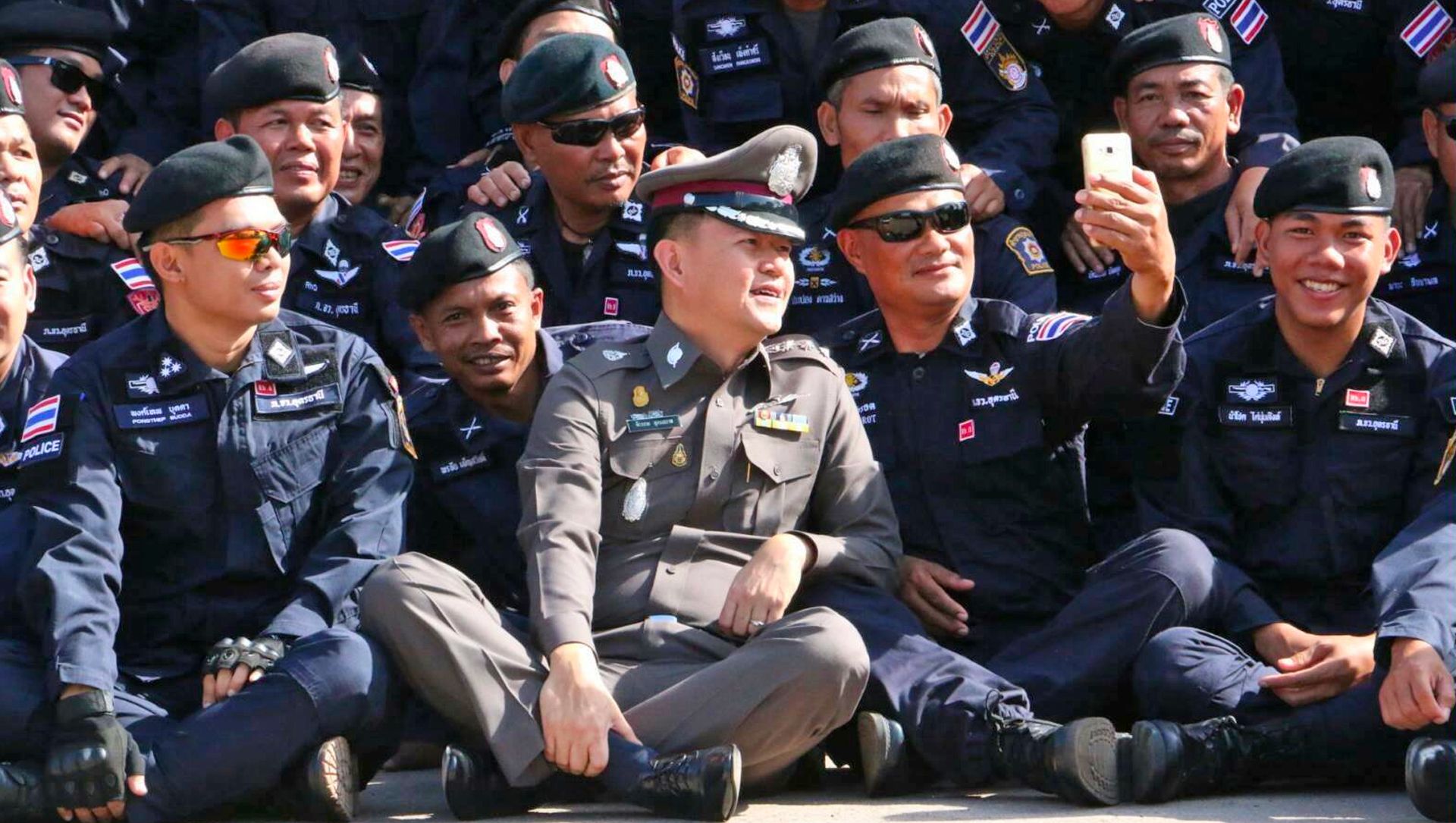Top: Thai Police Susu / Facebook
When recent graduate Emma Thomas visited Chiang Mai back in 2010 to immerse herself in Muay Thai training, she never imagined that she would be assaulted.
Much less by a trainer she came to Thailand to learn from, Thomas, who has since made a life in the kingdom, recounted this morning. But one night, after going out for a few beers with her fellow gym mates and the trainer, her life completely changed.
“At the end of the evening, he offered to drive me home, and I accepted because that was what my friends said would be the safest thing would be. But he didn’t take me home. Instead, he took me to the gym where he stayed at and he put me in a room there where he forced himself on me,” she said.
After divulging a secret she’d kept for years, the 31-year-old Briton said she had decided some time ago to go public with her experience to help others.
She spoke at the opening of a two-day seminar organized by the British Embassy meant to educate those on the front lines on how to improve their handling of assault victims in a country where nearly 90% of rape cases go unreported.
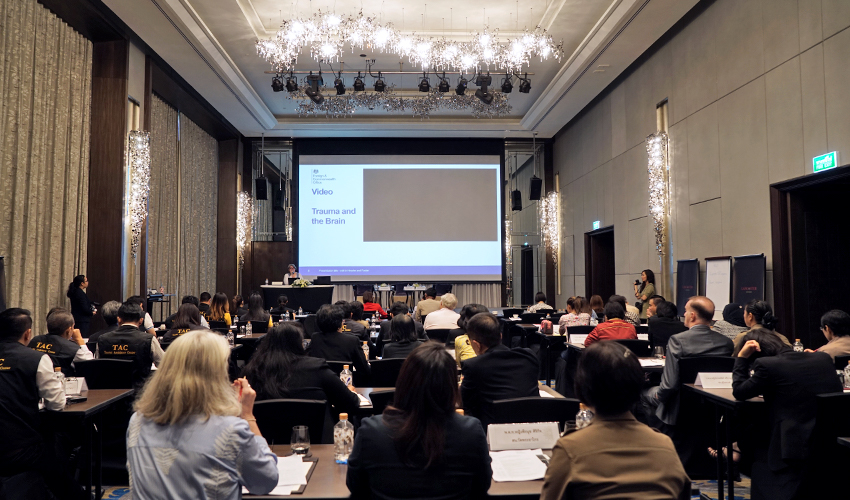
Some Thai officials present at the opening of the sexual violence training conference at the Lancaster Bangkok hotel took the stage to downplay the extent of the problem.
Thai Tourism Minister Anan Wongbenjarat blamed the media for perpetuating narratives that only embarrass Thailand and harm victims without solving anything.
“There are two main media narratives [about rape cases] right now. One, that officials should not let this happen, and two, that it happens a lot. … I believe the media and related agencies should be on the same page about not reporting on it until after the investigation,” he said, citing a victim’s right to privacy.
He said the media should not report such cases until they are fully investigated.
“The media shouldn’t write about these cases because… many times it does more damage than good,” he added. Anan left the stage saying he was “excited to hear” what anyone had to say and then could not be found for comment.
In a moment of mansplaining cringe, while a reporter was interviewing Thomas about her assault, police officer Wuttichai Poomsanguan interrupted unbidden to insist that women could not just make accusations “without evidence.”
“I don’t think we should blame the legal process for how few women report rape cases because this is how it is everywhere in the world, trust me. If you want to throw someone in jail, you must have evidence,” he said in Thai, then English.
Thai police have been faulted by activists and advocates for mishandling rape cases or ignoring them entirely.
Anan, striking a defensive tone, told the audience the kingdom “already has resources to help,” but said he was open to input from other countries have in order to “standardize” the country’s legal procedures.
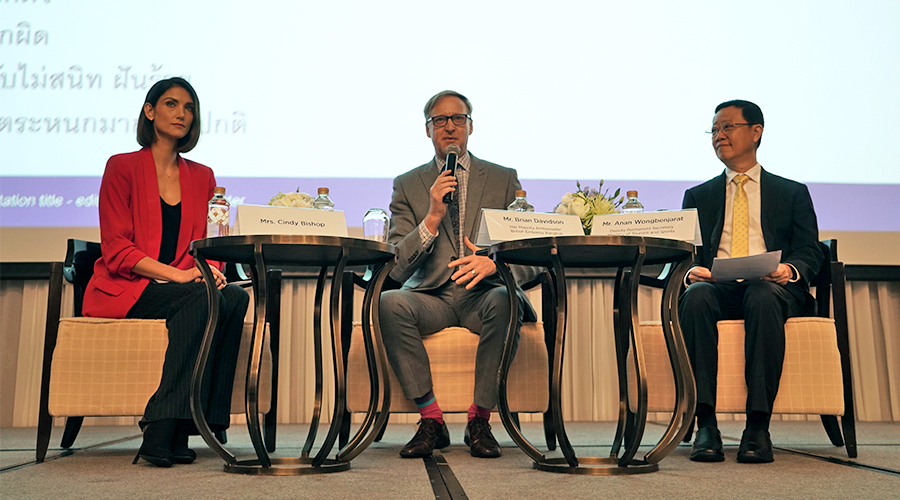
The Glasgow Clyde Rape Crisis Centre, a UK organization that’s provided free and confidential support to victims for over 40 years, was on hand to teach best practices and dispell common misconceptions about sexual violence.
The Glasgow center’s manager said that the focus was on the immediate support response victims receive – or too often don’t.
“The most important reason why I’m here is to look at the challenges for some of the first-responders and to give them some extras skills so they can be confident working with survivors,” said Isabelle Kerr, who has worked in the field 38 years.
Kerr told Coconuts Bangkok she wants responders to understand that assaults are almost always about more than they appear.
“Rape is not just a crime about sex or desire – it is violence with a sexual component. It’s about power and control and almost every survivor talks about feeling powerless, humiliated, afraid and feeling like they would be killed,” she said.
The group had invited Thomas to share her story on stage.
Thomas said it was therapeutic, even if her attacker never received justice.
“Nine years ago when I was assaulted, I wasn’t open to speaking about it at all, even to people who were closest to me,” she said in an interview. “But now I’m so happy to be here talking about it today. Even though I can’t get justice with my personal story, I can turn it into something positive to help others.”
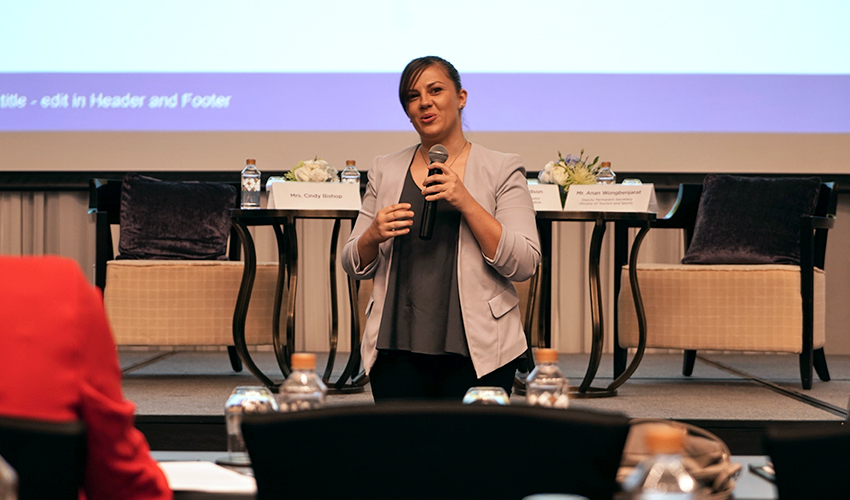
Inadequate data collection regarding rape cases makes it difficult to measure the problem. The official count of reported cases fluctuates somewhere above 30,000 annually, according to data from the Royal Thai Police and six-year-old network of One Stop Crisis Centres, a number believed to be far from reality.
British Ambassador Brian Davidson said the embassy has assisted 40 survivors of rape and sexual assult in the last three years involving British nationals.
Cultural attitudes and a weak legal framework are often blamed for the failure to take accusations seriously or properly investigate them. Thararat Panya, a Thammasat University law student who sparked debate two years ago by sharing her assault story, spoke of her own disappointment in the legal system.
“The legal process, as it stands, isn’t victim-friendly. For example, when a woman reports a rape, she is forced to tell her story over and over again though she is still in pain, or sometimes you get asked offensive questions that reflect the biases of the police,” she said.
“Because [of that], most women don’t know how to seek justice for crimes of sexual violence.
As a result, nearly nine out of 10 rapes in Thailand go unreported, with only 4% of actual accusations resulting in an arrest warrant being obtained.
Trial of Rape: Thai survivors share experiences of abuse and seeking justice at empowering event
These are the norms Davidson said he hopes to change with the seminar. He said that Thai law enforcement should be encouraged to take a “victim-centric” approach.
Petcharat Leukwanit, an inspector at the Bang Pla Ma Police Station in Suphanburi province, was among attendees there to learn about how police elsewhere handle rape cases in order to improve on her own work.
“In a lot of these cases, the investigators appear cold-hearted due to the questions we have to ask. The question may appear cruel but they are actually pertinent for the investigation,” she said, acknowledging that male officers are often not equipped to handle this.
She said it would be “very insightful” to see how such cases are handled in other countries and have a network to consult.
She hopes such discussions will spearhead a new wave of understanding that rape cases are more about than the legal process but also about victim empathy and support to secure an efficient conviction.
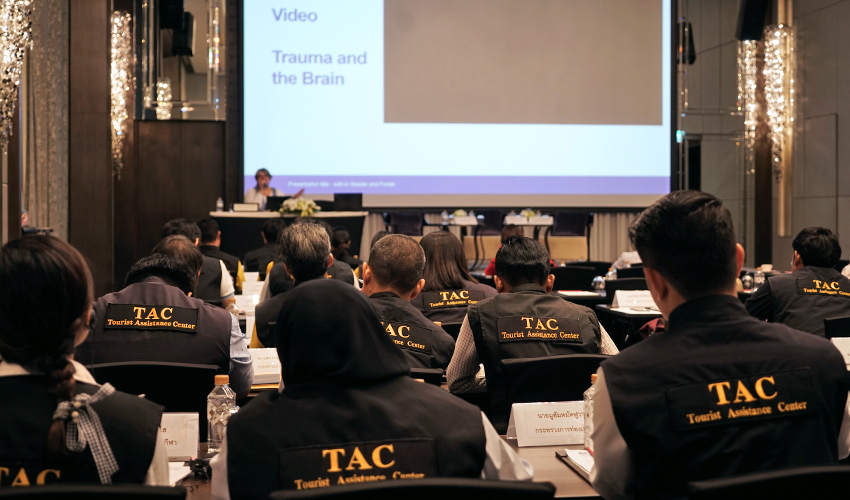
Awika Shatakhunrak from Krabi province’s Tourist Assistant Center said she was interested in learning about the different responses rape victims can exhibit.
“I want to understand the different ways people react to traumatic experiences, because I’m learning today that everyone reacts very differently,” she said. “While some become hysterical, others are calm and remove themselves from the incident; some fight back; some don’t, and some don’t even remember the incident,” she said.
Both women said they were attending the seminars voluntarily, without being ordered by any superiors.
The British embassy said it was the first conference of its kind organized abroad and could be used as a model globally.
Related:
Tainted by ‘rape cult’ allegations, rebranded Agama back in business on Thai island
Trial of Rape: Thai survivors share experiences of abuse and seeking justice at empowering event
Being Broken: Years of sexual abuse alleged at Agama yoga school on Koh Phangan
Rape remains a serious problem, but reported rates in Thailand not especially high
